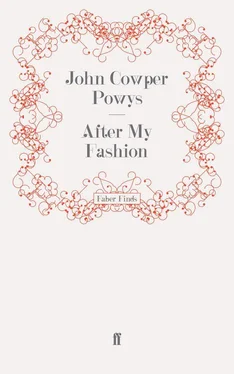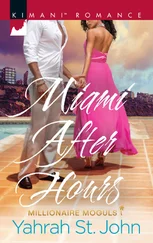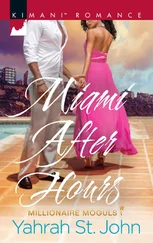‘What reason?’ she flung out.
‘Oh you know …’ He hesitated. ‘What’s the use of my saying it? It’s you who drive me on till you force me to say these things.’
‘Tell me what you were thinking. Tell me! Quick!’
‘It was nothing,’ he stammered. ‘We both think all sorts of unfair malicious things.’
‘You must tell me. I must know. What was it?’
‘It was natural enough … I daresay it’s not true. I meant that you’re angry with me because I felt remorseful about Nelly.’
‘Ah!’ She drew in her breath and her eyes grew dark against the pallor of her skin. Of course you’d say that. Being the most ill-bred thing you could possibly say, it’s characteristic of course. As it happens, it’s untrue. But if it were true, would that let you out? Can’t you see that such remorse with you is only fear for your own skin? Or are you really such a baby as to think that you can make your wife happy by holding her hand?’
‘You are very unfair,’ said Richard. ‘I can’t help hating to make a person suffer.’
‘We all suffer,’ retorted the dancer. ‘And the worst cause of our suffering is a man like you who thinks he can carry an ointment pot about with him to heal the wounds he makes. Haven’t you even got the courage of your callousness? Haven’t you even got the courage to face the fact that you are utterly and profoundly selfish? Must you go on slipping out of it and evading it and covering it up, to the very end?’
‘I don’t slip out of anything,’ protested Richard. ‘I wish I did!’
‘It’s because of this that your poetry is so bad,’ she went on. ‘It’s only your ingrained conceit that makes you think it anything but thoroughly bad. You deceive yourself far more deeply than you deceive anyone else.’
Richard’s face assumed the dogged obstinate look of a much persecuted mule, and this seemed to hound her on to further malicious stabs.
‘You talk of bringing your philosophy into your poetry. My good man, you must realize once for all that your poetry is a fraud, a fake, a piece of rank charlatanism. You’re the very last person to be a poet. The whole business is an elaborate edifice of humbug!’
‘If my poetry isn’t real,’ said Richard, ‘nothing in my existence is real.’
‘Nonsense! Stuff and nonsense! You’ve got a sound critical faculty. You’re receptive enough. You’re capable of doing very good honest literary work. But you’re so ridiculously proud that you pretend that all this is nothing. You must be the great poet of the age — or you will sulk in your tent and do nothing at all.’
‘You are most frightfully unfair,’ he began. ‘No one can tell for certain where their power is until they—’
‘Until they stop lying,’ she interrupted. ‘Don’t you understand that art is a thing connected with character?’
‘I thought it was a thing connected with imagination,’ said Richard sulkily.
The great dancer fixed her eyes on a sailing ship far out to sea.
‘God knows what it is, my dear,’ and she sighed deeply. ‘I only know it is a thing we seem unable to get into our life with each other. But it may be my fault quite as much as yours. I’m sorry, Richard. I’m sorry I’ve been bad. Shall we go back?’
He took her hand and kissed it and they began slowly retracing their steps. They were silent. With the splash of the long waves breaking beside them an infinite sadness gathered about their hearts, the kind of sadness which no argument can destroy and no hope can lift; the sadness which is of the very nature of life itself, when the distractions of desire and curiosity are for the moment in abeyance.
They had not moved far in the direction of the town when they heard themselves called by name from one of the high ridges of sand overgrown with grass that separated them from the marshes on the left. They stopped and turned. Two figures rose from a hollow place in the sand dunes and came running down the slope towards them.
Catharine’s extravagant greeting of Elise was a reminder to Richard of how small a place in the great world he himself held in comparison with his companion. Elise had never met Karmakoff; and before she condescended to notice Richard at all, the enthusiastic girl eagerly introduced him to the dancer.
The encounter between Elise and Ivan was like the encounter between two feline animals of the same jungle. They watched each other furtively, measuring one another’s strength and weighing in the balance one another’s magnetism. Her accumulated anger against Richard made the imperious dancer ready for any kind of an emotional plunge; the womanish eyes of the cynical Russian, with their strange green lights, dilated in amorous reciprocity to the furtive challenge which she gave him.
Poor impassioned Catharine had already wearied him with her unsophisticated emotion. She had irritated him, too, by queer fits of deep depression in which she had returned to her childish scruples, and incidentally she had made the situation more strained by constant references to Roger Lamb.
When the four of them moved on together towards the town, it appeared inevitable that Karmakoff and the dancer should outstrip the others — vehemently and passionately absorbed, as it seemed, in what they had to say to one another.
‘One day you’ll be coming to Moscow,’ Ivan remarked, among other things. ‘Our people ought to have you. You’re precisely what they must have. They’ll give you authority over our whole art movement, which owes so much to your genius already.’
‘There’s nothing left now in the world except art,’ sighed Elise.
‘And the only way to get anything beautiful,’ added Karmakoff, ‘is to put an end to the economic struggle.’
‘Can that really be done?’
‘It can be tried.’
‘By force?’
‘Why not?’
‘But force only breeds force.’
‘Words! my dear lady. It’s force when you prune a tree, but what that produces is fruit.’
‘It does me good to talk to you. I don’t know why.’
‘I have waited long to make your acquaintance. We were destined to meet, sooner or later.’
‘You’ve seen my work?’
‘I’ve seen you nine times this season.’
‘Do you like me better when I’m Greek or when I’m Christian?’
‘You are never wholly either. You are a woman Dionysus.’
‘When a woman Dionysus really does appear it will bring all our misery to an end.’
‘By bewitching us into thinking it isn’t misery?’
‘By undermining misery with tragedy.’
‘Ah! you separate those two; so do I. That’s where Cathy and I quarrel. She enjoys the sentiment of misery and loathes its boredom. I am never miserable.’
‘What are you, Ivan Karmakoff?’
‘I am never happy. I know that. And I am never unhappy. I am a person who works and plays.’
‘Is our dear Catharine part of the play?’
‘You know the answer to that, or you wouldn’t ask it! Catharine and I belong to two different worlds.’
‘And we belong to the same world?’
‘You will always be a symbol to me; of what I live for.’
‘And that is?’
‘To bring a little order into chaos.’
‘I am the most chaotic person in creation.’
‘You are the greatest artist in America.’
‘What’s the use of being that if no one understands me?’
‘Doesn’t Storm understand you?’
‘I’m afraid my Richard lives in the same world as your Catharine. Poor darlings! They are both children.’
‘Where and when have you and I talked like this before?’
‘In Nineveh probably, or in Carthage.’
‘Do you believe that kind of thing?’
‘I didn’t — an hour ago.’
Читать дальше











